Campaign meeting on Targets and Indicators for the Cities Goal
#UrbanSDG Campaign meeting on Targets and Indicators for the Cities Goal
ContextAgendaBios
A second SDSN convening, in partnership with the #urbanSDG Campaign, is planned to take place at IIHS in Bangalore over 12-14 January 2015, to build on the work done at the London convening over 26-28th August 2014.
The main objectives of the convening are to:
- Take stock of the Campaign in the light of the SGs report (attached) and the timetable and processes in play in the run-up to the SD Summit on 28-30th September 2015, including the mobilisation strategy for the year ahead
- Prepare a roadmap for a possible Mayors and Heads of State convening on an #urbanSDG in September 2015 in New York advance of the SD Summit
- Define a contingency strategy around Goal consolidation, especially in relation to Goal 9 on Resilient Infrastructure
- Complete the reframing of the Goal 11 Targets and indicators and linked ‘urbanisable’ targets of other goals, as input to the Intergovernmental negotiations that start on 19th January in New York. This discussion will be based on the London consultation (report attached), the latest SDSN indicators monitoring framework (attached)
- Accelerate the process of completing the creation of city-level SDG targets and indicators, to make available a public document for the UN Statistical Commission in March 2015
- Explore connections with other ongoing processes in 2015, specifically the Global Conference on DRR in Sendai in March 2015; Financing for Development (FfD) conference in Addis Ababa in July 2015 (background paper attached) and Paris CoP21 in December 2015, and linked preparatory processes in which cities have a role
- Explore steps to connect to the Habitat III agenda, as the Quito dates ( 2016) are out.
| Time | Monday – 12th January | Tuesday – 13th January | Wednesday – 14th January | |
| 8:30 | 9:00 | Registrations | ||
| 9:00 | 9:30 | Introductions | Plenary: Sustainable Cities Initiative Chaired by Debra Roberts |
OPEN FOR WORKING GROUPS |
| 9:30 | 10:00 | Plenary: Goal 11 – “ Make cities and human settlements inclusive, safe, resilient and sustainable” and Other Goals Chaired by Susan Parnell |
||
| 10:00 | 10:30 | |||
| 10:30 | 11:00 | Tea/Coffee Break | Tea/Coffee Break | Tea/Coffee Break |
| 11:00 | 11:30 | Plenary:Goal 11 and Other Goals Cont. |
Plenary: Financing #urbanSDG Implementation Chaired by Peter Head |
OPEN FOR WORKING GROUPS |
| 11:30 | 13:00 | Plenary: Introduction to other Processes Chaired by Eugenie Birch Habitat III WUC Climate COP and Paris SD Summit |
||
| 13:00 | 14:00 | Lunch | Lunch | Lunch |
| 14:00 | 16:00 | Working Groups on Targets and Indicators |
Working Groups on International Processes | Closing |
| 16:00 | 17:00 | Plenary: Working Group Presentations Chaired by Andrew Rudd |
Plenary: Working Group Presentations Chaired by Edgardo Bilsky |
|
| 17:00 | 20:00 | Sustainable Cities Presentations: Chaired by David Simon Durban : Debra Roberts Philladelphia and New York : Euginie Birch Accra: Martin Ababio London: Peter Head Rio: Samantha Barthelemy City Panel on Bangalore Presentation by Garima Jain and Amir Bazaz Chaired by V Ravichander |
Plenary: Strategy for Mobilization and Urban Campaign Chaired by William Cobbet |
#urbanSDG Campaign Statements Chaired by Aromar Revi GoI Rep. : Sameer Sharma UN Habitat : Andrew Rudd UCLG : Edgardo Bilsky WUC : Eugenie Birch WEIGO : Caroline Skinner SDI: (tbc) C-40: Sanjay Sridhar ICLEI : (tbc) COMMUNITAS: Maruxa Cardama (tbc) CITIES ALLIANCE : William Cobbet SDSN : Cynthia Rozenweig (tbc) |
| 20:00 | On |
Dinner | Dinner | Dinner |
| Andrew Rudd is the Urban Environment Officer in the Urban Planning and Design Branch of UN-Habitat. He serves as focal point for the agency’s green economy, cities and biodiversity and urban agriculture initiatives, and has represented UN-Habitat in the Environmental Management Group’s IMG on the Green Economy, the International Resource Panel’s Cities Working Group, the Global Partnership on Cities and Biodiversity and the Task Forces for the City Biodiversity Index and Outlook. Mr Rudd managed the Urban Patterns for a Green Economy quick guides series, which will be launched at Rio+20. At UN-Habitat he also coordinated a photographic investigation of rapidly-growing cities and the agency’s participation in the Shanghai World Expo 2010. Previously Mr Rudd worked as an architect in New York on projects related to transport master planning and retail concept design. He is a contributing author of the upcoming City Biodiversity Outlook (2012), Working towards a Balanced and Inclusive Green Economy (2011), UN-Habitat’s State of the World’s Cities Report 2010: Bridging the Urban Divide and the LSE Cities Programme’s Housing and the City (2007). Mr Rudd received a BA in Architecture from Yale University and an MSc in City Design and Social Science from LSE. | 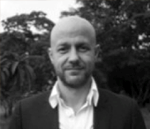 |
|
|
|
||
| Aromar Revi Aromar Revi is the Director of the Indian Institute for Human Settlements (IIHS) – India’s first prospective National University for Research and Innovation to address challenges of urbanisation through an integrated programme of education, research, consulting and advisory services.He has been a senior advisor to various ministries of the Government of India, consulted with a wide range of UN, multilateral, bilateral development and private sector institutions and works on economic, environmental and social change at global, regional and urban scales.Aromar has led over a hundred major research, consulting and implementation assignments in India and abroad; helped structure, design and review development investments in excess of $4 billion; worked on three of the world’s ten largest cities, with communities across twenty-five of India’s twenty-eight states apart from multiple international projects in half a dozen countries.He is also one of South Asia’s leading disaster mitigation and management experts and has led emergency teams to assess, plan and execute recovery and rehabilitation programmes for ten major earthquake, cyclone, surge and flood events affecting over five million people.Aromar is considered a leading expert on Global Environmental Change especially on Climate Change adaptation and mitigation. He is one of the Coordinating Lead Authors for the Urban Areas section of the IPCC 5th Assessment report (2014). He also serves as a member of the Global Advisory Board for the Global Assessment of Risk report (2011). He also works on the dynamics of macro-governance and on long-range futures for India and South Asia. He is currently involved in developing India 2050, a dynamic long-range national economy-resource-demographic model for India.Aromar’s commitment to sustainable urban development in India is well illustrated by his contribution to India’s national public housing programme which now builds close to two million houses a year in rural India. He was responsible for the development of housing and urban development plans for two-thirds of India’s states in the 1990s. |
 |
|
|
|
||
| Cynthia Rosenzweig is a Senior Research Scientist at the NASA Goddard Institute for Space Studies where she heads the Climate Impacts Group. She recently co-chaired the New York City Panel on Climate Change, a body of experts convened by the Mayor to advise the city on adaptation for its critical infrastructure. She co-led the Metropolitan East Coast Regional Assessment of the U.S. National Assessment of the Potential Consequences of Climate Variability and Change, sponsored by the U.S. Global Change Research Program. She was a Coordinating Lead Author of the IPCC Working Group II Fourth Assessment Report, and served on the IPCC Task Group on Data and Scenario Support for Impact and Climate Analysis. She is also Co-Editor of the Urban Climate Change Research Network (UCCRN) First Assessment Report on Climate Change and Cities (ARC3), the first-ever global, interdisciplinary, cross-regional, science-based assessment to address climate risks, adaptation, mitigation, and policy mechanisms relevant to cities. A recipient of a Guggenheim Fellowship, she joins impact models with climate models to project future outcomes of both land-based and urban systems under altered climate conditions. She is a Professor at Barnard College and a Senior Research Scientist at the Earth Institute at Columbia University. | 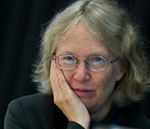 |
|
|
|
||
| David Satterthwaite is Senior Fellow, Human Settlements Group, at the International Institute for Environment and Development. He specializes in poverty reduction and environmental problems in urban areas. In addition, he works in climate change adaptation, including contributions to the IPCC’s Third and Fourth Assessments and as one of the coordinating lead authors for the chapter on “Adapting Cities” in the IPCC’s Fifth Assessment that is currently underway. He has undertaken research and documentation of the current and potential role of urban poor federations to address their needs and develop partnerships with government agencies, and research on why the scale and depth of urban poverty is under-estimated and misrepresented by most governments and international agencies. He has written and edited various books on urban issues, including Squatter Citizen (with Jorge E. Hardoy), The Earthscan Reader on Sustainable Cities, Environmental Problems in an Urbanizing World (with Jorge E. Hardoy and Diana Mitlin) and Empowering Squatter Citizen (with Diana Mitlin), which are published by Earthscan, London. He is also editor of Adapting Cities to Climate Change (with Jane Bicknell and David Dodman) published by Earthscan in April 2009 and co-author (with Diana Mitlin) of Urban Poverty in the Global South: Scale and Nature published by Routledge in 2012. He is Visiting Professor at University College London (Development Planning Unit) and he was awarded the Volvo Environment Prize in 2004. He holds a BA from the University of Bristol, a Diploma in Development Planning from University College London, and a PhD from London School of Economics. | 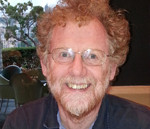 |
|
|
|
||
| David Simon research encompasses principally the interface between development and the environment, in the context of sustainability and global environmental/climate change but also aspects of political geography and critical geopolitics, urbanisation and transport policy. He has a keen interest in theoretical, applied and policy arenas, underpinned by the belief that real progress lies in a far closer integration across them than is generally the case. He has been at the leading edge of debates about the nature of ‘development’ and the exploration of the utility of so-called ‘post-structuralist’ perspectives such as postmodernism, postcolonialism and post-traditionalism, with application to various empirical contexts. This work has been presented at international conferences, and published especially in leading international outlets like Geografiska Annaler(1997), Environment and Planning D: Society and Space (1998), my co-edited book, Development as Theory and Practice (1999); the edited volume, Towards a new regional and local development research agenda (2002); Development in Practice (2003) and in Progress in Development Studies (2003). | 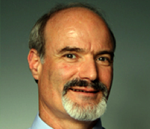 |
|
|
|
||
| Debra Roberts established and heads the Environmental Planning and Climate Protection Department of eThekwini Municipality (Durban, South Africa). Her key responsibilities in this post include: overseeing the planning and protection of the city’s biodiversity and natural resource base; directing and developing the municipality’s Climate Protection Programme; and ensuring that biodiversity and climate change considerations influence all aspects of planning and development in the city.Dr. Roberts is currently a lead author of Chapter 8 (Urban Areas) and a contributing author to Chapter 12 (Africa) of Working Group II of the Intergovernmental Panel on Climate Change’s (IPCC) Fifth Assessment Report, due for release in 2014. She is also a member of the South African climate negotiating team. She sits on various international advisory bodies focused on climate change issues in cities (e.g. the Rockefeller Foundation’s Asian Cities Climate Change Resilience Network). In addition she acted as vice-chair and then chair of UN-Habitat’s HS-NET Advisory Board which oversaw the production of the 2011 “Cities and Climate Change” Global Report. Most recently she has been appointed as one of the 60 international experts convened under Royal Decree by the King of Bhutan to work on the preparation of “The New Development Paradigm Report” which will be submitted to the United Nations General Assembly in 2014. Dr Roberts will co-chair the Ecological Sustainability Working Group of the “New Development Paradigm” International Expert Working Group. Dr. Roberts has written widely in the fields of urban open space planning, environmental management and urban climate protection and has received a number of awards for her work. | 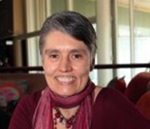 |
|
|
|
||
| Edgardo Bilsky is the director of programs and research at United Cities and Local Governments (UCLG, headquarters in Barcelona, Spain) and coordinates UCLG’s trienial flagship report, the Global Report on Local Democracy and Decentralization (GOLD). Born in Argentina, he has a Masters in History from the University of Paris VII and from the High Level School of Social Sciences (EHESS) in Paris. He joined UCLG at its foundation as a global organization in 2004, having been director for Latin America, since 1990, at the World Federation of United Cities, one of UCLG’s two founding organizations. In the 90’s, he led different projects on support to decentralization and local development in Central America (Costa Rica, Guatemala, Honduras, Nicaragua, Salvador) and in Dominican Republic (for the European Commission). Prior to this in the 80’s, he conducted research and taught at the University of Paris and Buenos Aires (Argentina). | ||
|
|
||
| Eugénie L. Birch FAICP, RTPI (hon), is the Nussdorf Professor of Urban Research, Department of City and Regional Planning, School of Design, University of Pennsylvania. She is the founding co-director of the Penn Institute for Urban Research, dedicated to integrative research and instruction in sustainable urban development. She is co-editor of Penn Press’s The City in the 21st Century series that has published more than twenty volumes since 2005.Dr. Birch has served in many leadership positions including editor, Journal of the American Planning Association, chair, Planning Accreditation Board, president, Association of Collegiate Schools of Planning, Society for American City and Regional Planning History and the International Planning History Society. She has received several awards: the Lawrence C. Gerkens Award in Planning History, Jay Chatterjee Award, Margarita McCoy Award and Distinguished Educator Award from the Association of Collegiate Schools of Planning.Dr.Birch’s most recent publications include Global Urbanization (2011, co-edited with Susan Wachter), Women’s Health and the World’s Cities (2011, co-edited with Afaf Meleis and Susan Wachter) and Neighborhoods and Life Chances, How Place Matters (2011, co-edited with Susan Wachter and Harriet Newberger). Her current research includes Penn IUR-sponsored Anchor Institutions in the Northeast Corridor, APEC-Energy Smart Communities Knowledge-Sharing Platform supported by the government of Taiwan, Energy Efficient Building Stakeholder Platform supported by the U.S. Department of Energy, and Sustainable Development Indicators Project supported by the Ford Foundation.Dr. Birch has served as a member of the New York City Planning Commission and on the jury to select the designers for the World Trade Center site. She is currently chair of the Board of Directors, Municipal Art Society of New York and chair, UN-HABITAT’s World Urban Campaign.Dr. Birch, who lives in New York City, holds a Ph.D and Masters in Urban Planning from Columbia University and an A.B. cum laude in History from Bryn Mawr College. | 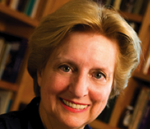 |
|
|
|
||
| Garima Jain is a Consultant at the Indian Institute for Human Settlements. Her areas of research include issues of vulnerabilities and risks particularly in urban areas, migration, climate change and multi-dimensional urban poverty.She supports the practice team on urban policy projects. She has led several urban policy projects including those on disaster risk for UNISDR, urban poverty for UNDP and overall urban policy support partnership with Rockefeller Foundation. She is currently involved in developing Comparative City Indicators for the Post 2015 Sustainable Development Goals, particularly those pertaining to Goal 11 on Sustainable Cities and Human Settlements. She also helps build and deliver capacity building programmes for working professionals on various themes including – Integrated Urban Disaster Risk Reduction, Building Resilience against Risk, Urban India & Environmental Sustainability, Data Visualisation and Re-imagining the world-class city. She also contributes to the curriculum building exercise for Quantitative and Empirical Methods, Urban Management and Urban Planning. Garima also assists with the project management of the organisation.She has an extensive experience in planning, research and capacity building. She led design and development projects for sustainable community habitats in Mukteshwar. She has worked with the City of Somerville (Massachusetts) for analysing existing and designing new parking regulations. She was a part of the London Organizing Committee of Olympic Games (2012), where she helped prepare accessibility & inclusion guidelines and led the accessibility management team in the transportation planning projects. | 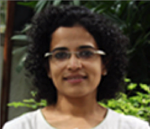 |
|
|
|
||
| Guido Schmidt-Traub is Executive Director of the UN Sustainable Development Solutions Network. He has served as climate change advisor to the Africa Progress Panel secretariat and was CEO of Paris-based CDC Climat Asset Management, an investment company regulated by the French financial markets regulator. From 2008-2010 Guido was Director and Partner at South Pole Carbon Asset Management in Zurich, a leading developer of greenhouse gas emission projects. Prior to managing the MDG Support Team at UNDP (2006-2008) he served as Policy Advisor and then as Associate Director of the UN Millennium Project in New York, which was tasked with developing a concrete action plan for the world to achieve the Millennium Development Goals. Earlier Guido was Partner at IndexIT Scandinavia, a private equity fund for early-stage technology companies, and consultant at McKinsey & Company in Germany. Guido holds an M.Phil. in Economics from Oxford University (Rhodes Scholar) and a Masters in physical chemistry from the Free University Berlin. He resides in Paris with his family. | 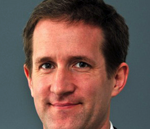 |
|
|
|
||
| Holger Kuhle, seconded from GIZ, the German Federal Enterprise for International Cooperation, is working as manager within the SDSN office in Paris. He has served as component manager within the GIZ-Program for the “Support of Entrepreneurship and Innovation” in Tunisia and before as adviser for Local Economic Development within the “GIZ-Urban Development Programme in Syria” in the city of Aleppo. Within his previous engagement at the public bank for SME promotion and infrastructure in Berlin, his main tasks were to propose and conduct prospective studies, to manage pilot projects and product development in the field of urban economic development, at European, regional and local (cross-border) levels. Here he has been involved in innovative projects supported by the European Commission: the exchange of best practices and development of tools to foster technology transfer as well as microcredit in depressed urban and rural areas, methods to promote employment at local level, approaches to create cross-border regions and clusters of innovation. Holger holds a PhD in Social Sciences with focus on regional and urban development from Humboldt-University and a first degree in Political Sciences from Free University Berlin. | 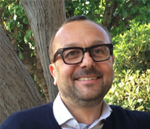 |
|
|
|
||
| James Goldstein is a Senior Fellow at Tellus Institute, where he directs the Sustainable Communities Program. His research centers on the development of analytic methods and stakeholder processes for community-based initiatives to integrate environmental protection, economic development, and social well-being. He has over thirty years of experience in the assessment of environmental problems and policies, with a particular emphasis on integrated approaches for water resource planning, solid waste/materials management, and long-range scenario analysis. His current focus is incorporating a global perspective in the design of local and regional sustainability efforts. He has developed sustainability scenarios for the Boston metropolitan area, advised on integrated resource planning for provision of regional water management, and advanced sustainable urbanization as a key component of the future UN Development Agenda.Mr. Goldstein received a B.A. in Geography from Clark University in 1978. | 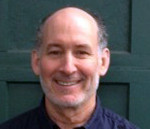 |
|
|
|
||
| Jeffrey D. Sachs is a world-renowned professor of economics, leader in sustainable development, senior UN advisor, bestselling author, and syndicated columnist whose monthly newspaper columns appear in more than 80 countries. He has twice been named among Time Magazine‘s 100 most influential world leaders. He was called by the New York Times, “probably the most important economist in the world,” and by Time Magazine “the world’s best known economist.” A recent survey by The Economist ranked Professor Sachs as among the world’s three most influential living economists of the past decade.He serves as Director of The Earth Institute at Columbia University, as well as Quetelet Professor of Sustainable Development and Health Policy and Management. He is Special Advisor to United Nations Secretary-General Ban Ki-moon on the Millennium Development Goals, having held the same position under former UN Secretary-General Kofi Annan. He is co-founder and Chief Strategist of Millennium Promise Alliance, and is director of the Millennium Villages Project. He has authored several books including three New York Times bestsellers: The End of Poverty (2005), Common Wealth: Economics for a Crowded Planet (2008), The Price of Civilization (2011), and To Move the World (2013). | 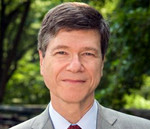 |
|
|
|
||
| Jessica Espey is Program Leader of the SDSN’s Monitoring and Accountability Initiative. This initiative aims to support the development of indicators for SDG monitoring, and frameworks for review and accountability. The initiative is also exploring investments and innovations that could help to strengthen national and global monitoring systems.Prior to joining SDSN, Jessica served as a special adviser on the post-2015 agenda within the Office of the President of Liberia, supporting the work of The High Level Panel of Eminent Persons (of which President Sirleaf was co-chair) and the development of the Common African Position on the Post-2015 Agenda. For three years prior she was a senior researcher for Save the Children UK, who initially supported her work in Liberia on secondment. She has also worked as a researcher at the Overseas Development Institute (ODI) and the British Institute in Eastern Africa (BIEA). She has particular expertise in the study of inequality, age and gender discrimination.Jessica holds a Bachelor of Arts with Honours in Modern History from the University of Oxford and a Masters of Sciences in the Political Economy of Development from the School of Oriental and African Studies, University of London. Over the past 8 years she has lived and worked in the UK, US, Liberia, Kenya and Rwanda. | 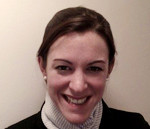 |
|
|
|
||
| José Siri is an epidemiologist focusing on infectious disease transmission, systems-analytic research and global urban health—he joined UNU-IIGH in February 2014 as a Research Fellow in Urban Health. Dr. Siri has been involved for four years with the International Council for Science (ICSU) initiative Health and Wellbeing in the Changing Urban Environment – a Systems Analysis Approach, a global programme now being co-sponsored by UNU, along with ICSU and the Interacademy Medical Panel (IAMP). He previously spent three years at the International Institute for Applied Systems Analysis in Laxenburg, Austria, where he conducted research for the Health and Global Change, World Population, and Mitigation of Greenhouse Gases and Atmospheric Pollution Programs—this work encompassed such diverse thematic areas as the role of maternal education in childhood malaria risk, models of malaria and Helicobacter pylori transmission and analysis of the long-term evolution of air pollutants in response to European Union policy. Dr. Siri is an associate editor for the Revista Panamericana de Salud Pública/Pan American Journal of Public Health (RPSP/PAJPH), the journal of the Pan American Health Organization (PAHO), and was a guest editor for a special issue on urbanization and environment in China in Population and Environment. He earned his BS in Ecology and Systematics from Cornell University, and his MPH in International Health and PhD in Epidemiology from the University of Michigan. |  |
|
|
|
||
| Mark R. Montgomery is a population researcher in the Population Council’s Poverty, Gender, and Youth program, and is a professor in the economics department at Stony Brook University. He studies the increasing urbanization of the world’s population: what an urban world will look like and how we can best improve the lives of people living in cities. He is particularly interested in the effects of climate change on urban populations.From 1999 to 2003, Montgomery served as co-chair of the U.S. National Academy of Sciences Panel on Urban Population Dynamics. He was lead editor of its influential 2003 report, Cities Transformed: Demographic Change and Its Implications in the Developing World. The report provided a comprehensive analysis of the demographic, economic, social, and political features of urbanization in poor countries.Before joining the Council in 1993, Montgomery was in the Office of Population Research at Princeton University and was a Rockefeller Foundation senior fellow at the University of Lagos. He is a member of the Population Association of America and the International Union for the Scientific Study of Population. He also sits on the editorial board of the Journal of Urban Health; the scientific advisory board of the Wittgenstein Center for Demography and Global Human Capital; the population sciences subcommittee initial review group of the National Institute of Child Health and Human Development, National Institutes of Health; the advisory board of the Urban Health Resource Centre in New Delhi, India; and the advisory board of the Integrated Demographic and Health Surveys Project (I-DHS) and the Minnesota Population Center.He holds a BA from the University of North Carolina at Chapel Hill and a PhD from the University of Michigan. | 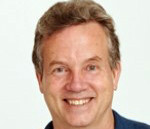 |
|
|
|
||
| Martha Chen is a Lecturer in Public Policy at the Harvard Kennedy School, an Affiliated Professor at the Harvard Graduate School of Design, and International Coordinator of the global research-policy-action network Women in Informal Employment: Globalizing and Organizing (WIEGO). An experienced development practitioner and scholar, her areas of specialization are employment, gender, and poverty with a focus on the working poor in the informal economy. Before joining Harvard in 1987, she had two decades of resident experience in Bangladesh working with BRAC (now the world’s largest non-governmental organization) and in India, where she served as field representative of Oxfam America for India and Bangladesh. Marty received a PhD in South Asia Regional Studies from the University of Pennsylvania. She is the author and editor of numerous books including Bridging Perspectives: Labour, Informal Employment, and Poverty (co-edited with Namrata Bali and Ravi Kanbur), The Progress of the World’s Women 2005: Women, Work and Poverty (co-authored with Joann Vanek, Francie Lund, James Heintz, Renana Jhabvala and Chris Bonner), Mainstreaming Informal Employment and Gender in Poverty Reduction (co-authored with Marilyn Carr and Joann Vanek), Women and Men in the Informal Economy: A Statistical Picture (co-authored with Joann Vanek and others) and Perpetual Mourning: Widowhood in Rural India. Dr. Chen was awarded a high civilian award, the Padma Shri, by the Government of India in April 2011; and a Friends of Bangladesh Liberation War award by the Government of Bangladesh in December 2012. | 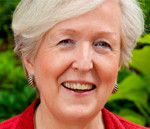 |
|
|
|
||
| Martin Oteng-Ababio is a Senior Lecturer and Coordinator of the Urban Disaster Risk Reduction Programme, Department of Geography and Resource Development, University of Ghana – Legon. His specialized areas of study include urban environmental management, urban disaster risk reduction, and the problem of informality. Among other topics, he has studied E-waste scavenging as an economic opportunity for youth in Accra. He has written widely on urban issues in Ghana, and is the author/co-author of over 25 articles in refereed journals, as well as 5 book chapters. He is currently working on a book on solid waste management in Ghana. He received his PhD in Geography and Resource Development from the University of Ghana. | 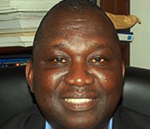 |
|
|
|
||
| Maruxa Cardama co-founded Communitas, a coalition for sustainable cities and regions in the new UN Development Agenda. Earlier she run nrg4SD, an international organisation of subnational governments promoting sustainable communities, and co-facilitated the engagement of subnational and local authorities in the UN Rio +20 Conference. Previously she was Deputy Director at the representation of the South West of England to the EU where she led on the sustainability portfolio for a partnership of regional authorities, academia and the private sector. Before that, she started her career at the EU representation of the Spanish region of Galicia and the EU Committee of the Regions. Besides, Maruxa has worked as Expert on Governance and Public Administration Reform for the Government of Romania and The British Council. She has also lectured in capacity building programmes on EU sustainability policy and funding. In all, Maruxa has 12 years-experience on strategic policy analysis and advocacy, international partnerships, capacity building, and multi-level governance in the field of sustainable development at the international, national and subnational levels. She is currently serving as Co-Chair of the Drafting Committee for the Declaration of the upcoming 65th Annual UN DPI/NGO Conference, which will take place 27-29 in NYC with the title ‘2015 and Beyond: Our Action Agenda’. |  |
|
|
|
||
| Peter Head is a champion of sustainable development. He established the Ecological Sequestration Trust in 2011. He advocates that changing the way we invest public and private money in the built environment could be made very much more effective if the public and private sectors adopt sustainable development principles. Peter is a civil and structural engineer who has become a recognised world leader in major bridges (he received an OBE for successfully delivering the Second Severn Crossing as Government Agent), advanced composite technology and now in sustainable development in cities and regions. He has won many awards for his work including the Award of Merit of IABSE, the Royal Academy of Engineering’s Silver Medal and the Prince Philip Award for Polymers in the Service of Mankind. He joined Arup in 2004 to create and lead their planning and integrated urbanism team and directed work on the Dongtan Eco City Planning project. In July 2008 he was awarded an honorary doctorate in engineering at Bristol University, where he is a visiting Professor in Sustainable Systems Engineering. In May 2011 he was appointed as a visiting professor in eco-cities at Westminster University. In 2009 he was awarded the Sir Frank Whittle medal of the Royal Academy of Engineering for a lifetime contribution to the well-being of the nation through environmental innovation. In 2008 he was named by the Guardian Newspaper as one of 50 people that could ‘save the planet’. He was cited by Time magazine in 2008 as one of 30 global eco-heroes and has been one of CNN’s Principle Voices. In 2011 he was awarded the CBE in the New Year’s Honours List for services to Civil Engineering and the Environment. | 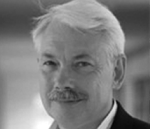 |
|
|
|
||
| Samantha Barthelemy is a Belgian-Brazilian native of Rio de Janeiro and a dual degree Master of International Affairs with the Paris Institute of Political Studies (Sciences Po) and Columbia University’s School of International and Public Affairs (SIPA), with a specialization in Education and Security Policies, Conflict Prevention and Resolution, Advocacy and Communications. Barthelemy got her BA in International Relations and Political Sciences (specialization on Peace, Justice and Conflict Resolution) from Tufts University in 2008, having spent her junior year at Sciences Po. Following her undergraduate studies in Boston and Paris, Barthelemy worked as a journalist for the Portuguese Radio at the New York based United Nations’ Department of Public Information. Over the summer of 2010, Barthelemy taught children of Retiro, Ilha de Guaratiba, an underprivileged community of Rio de Janeiro, on the United Nations’ Millennium Development Goals and children’s rights. She was invited to share her experience as a speaker at the 2010 World Family Organization’s Paris Summit, “Education for All”. Barthelemy is a writer at samanthabarthelemy.blogspot.com and contributor to The Rio Times and HELO Magazine. After seven years living between Boston, New York and Paris, she returned to her hometown to work with UNESCO and Rio de Janeiro’s Education Secretariat in the coordination of the Schools of Tomorrow Program (Escolas do Amanhã). The innovative program, launched by the current Secretary of Education, Cláudia Costin, seeks to improve 155 municipal schools for over 100.000 children and adolescents living in the most vulnerable areas of the city of Rio de Janeiro. The Program aims to narrow the gap between the Schools of Tomorrow and the overall Municipal Network of basic public education by creating the opportunities and learning conditions students and education professionals need to teach and learn in adversity. With the goals of improving the quality of education and reducing school dropout, the Schools of Tomorrow are transformed into islands of excellence and security not only for primary school children but for entire communities. | ||
|
|
||
| Shagun Mehrotra is Professor of Sustainable Development at The New School University, New York and is the founding Director of the Sustainable Development Solutions Center. Professor Mehrotra serves on UNSDSN’s Urban Thematic Group charged by the UN Secretary General as an external advisory group for the post-2015 development agenda. Mehrotra co-directs UCCRN a global research network of 500 scholars and practitioners based in a 100 cities dedicated to urban climate change research and policymaking.Over the last decade and a half, his research and advice has widely engaged governments and private sector in Africa, Asia, and Latin America on climate change, infrastructure economics and finance, and poverty reduction in cities, particularly large slums. He has led 45 multidisciplinary teams to assess climate risk and craft response in global cities and a dozen teams on infrastructure reforms. View classroom presentations and listen to podcasts here. Professor Mehrotra established Climate and Cities, an international policy advisory facility, jointly housed at Columbia University, and NASA Goddard Institute for Space Studies. Previously, he served on the staff of the World Bank, leading infrastructure reform of public utilities in Africa with a focus on expanding services to the urban poor. He is a frequent speaker at conferences and has published extensively on these issues, including two recent books, one on Climate Change and Cities with Cambridge University Press and another on infrastructure economics with Oxford University Press. His work has featured in Nature,and Scientific American and he is a reviewer for policy relevant research for Science—the world’s leading journal of scientific research. He has a PhD from Columbia University in Urban Planning with specialization in Infrastructure Economics. | 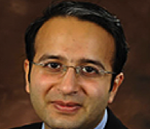 |
|
|
|
||
| Susan Parnell is an urban geographer in the Department of Environmental and Geographical Sciences at the University of Cape Town (UCT) and is on the Executive of the African Centre for Cities at UCT. She has held previous academic positions at Wits University and the University of London (SOAS) and visiting research fellowships from the LSE, Oxford University, Durham University, the British Academy and was a Leverhulme Visiting Professor at University College London in 2012. She is a widely published author of scholarly papers. Recent co-edited books include Climate at a City Scale, A Routledge Handbook of Cities of the Global South and Africa’s Urban Revolution. She serves on the Editorial Boards of many ISI ranked academic journals dealing with urban and development issues.Sue’s early academic research was in the area of urban historical geography and focussed on the rise of racial residential segregation and the impact of colonialism on urbanisation and town planning in Sub-Saharan Africa. Post democracy in South Africa much of her work focused on issues of urban transformation (local government, welfare and urban environmental justice. By its nature this research was not purely academic, but involved liasing with communities, local and national government and international donors. This mode of translational research now forms a core mode of work at the African Centre for Cities. ). Recently Sue has returned to historical research, working with a number of other partners on explaining the planning deficits of African cities. Sue has a prominent position with UCT leadership structures, served on the boards of several local NGOs concerned with poverty alleviation, sustainability and gender equity, is a regular keynote speaker and is part of national and international advisory research panels. | 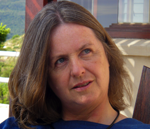 |
|
|
|
||
| Thomas Elmqvist is a professor in Natural Resource Management at Stockholm resilience Centre, Stockholm University. His research is focused on ecosystem services, land use change, urbanization, natural disturbances and components of resilience including the role of social institutions. He is coordinating a major interdisciplinary research theme as part of the Stockholm Resilience Centre (www.stockholmresilience.su.se) at Stockholm University, focussing on governance and management of ecosystem services in urban landscapes. He serves as associated editor for the journals Ecology and Society, Ecosystem services, Ambio and Sustainability Science. He has led the “Cities and Biodiversity project” (www.cbobook.org) and currently leading a Future Earth project “What is Urban” and part of the scoping expert group on regional and subregional assessments in IPBES. |  |
|
|
|
||
| William (Billy) Cobbett is Director of Cities Alliance, a global partnership for urban poverty reduction and promotion of the role of cities in sustainable development. He joined the Cities Alliance in 2001 after serving as acting Chief of the Shelter Branch at the United Nations Human Settlements Programme (UN-Habitat), where he designed and launched the Global Campaign for Secure Tenure.Prior to joining UN-Habitat he held numerous positions in his native South Africa, including Director of Housing for the City of Cape Town, Director-General of the National Department of Housing, and National Coordinator of the Department of Local and Regional Government, and Housing, for the African National Congress. He began his urban career as Coordinator of Planact, an urban NGO in Johannesburg. | 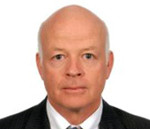 |
|
|
|
||
| William D. Solecki is a Professor in the Department of Geography, Hunter College, City University of New York. He has led or co-led numerous projects on the process of urban environmental change and transformation. As Director of the CUNY Institute for Sustainable Cities, he has worked extensively on connecting cutting-edge urban environmental science to everyday practice and action in cities. He most recently served as Co-Chair of the New York City Panel on Climate Change, as Co-Principal Investigator of the Integrated Assessment for Effective Climate Change Adaptation Strategies in New York State (ClimAID), and as Co-Leader of the Metropolitan East Coast Assessment of the US National Assessment of the Potential Consequences of Climate Variability and Change. He is a Lead Author of the IPCC Working Group II Fifth Assessment Report. He is also a member of the Scientific Steering Committee of the Urban and Global Environmental Change core project of the International Human Dimensions Programme. | 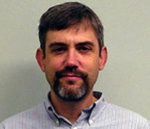 |
|
|
|
||
| Yunus Arikhan has been working at ICLEI World Secretariat since 2009. Between 2009-2012, he led ICLEI´s Cities Climate Center. Within this scope, he advanced and coordinated ICLEI´s work on climate mitigation, established the Bonn Center for Local Climate Action and Reporting – carbonn, operating the Cities Climate Registry, and served as the Director of Secretariat the World Mayors Council on Climate Change. Since 2013, he leads ICLEI´s policy and advocacy work at the UN ECOSOC, UN bodies and multilateral agreements. | 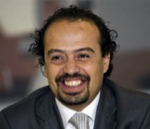 |
|
